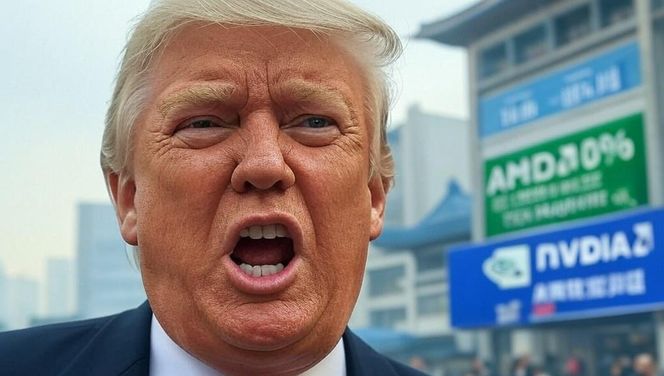TECH NEWS – The US President is trying to boost chip manufacturing in the US and would impose a 25% tariff on chips made in Taiwan.
Trump has promised tariffs on chips imported into America, and has promised that the tariffs will rise significantly in a year. The U.S. president gave new details of his tariff plans at a press conference in Mar-a-Lago, adding that he wanted to give America’s partners time to come to the country and manufacture their products there. His comments have sent shockwaves through the semiconductor industry, with companies rushing to bring in products ahead of potential tariffs.
At the press conference, Trump was first asked about tariffs on the auto industry. When pressed further about his plans for semiconductors and pharmaceuticals, Trump replied that the tariffs would be at least 25% (including cars!) and would increase significantly over the course of a year. However, the president promised that his administration would give chip companies time to set up shop in the U.S. because if they have their plant or factory there, they won’t have to plan for tariffs.
Ultimately, the president shared that his administration wants to give chipmakers a chance before imposing tariffs that could easily disrupt the global semiconductor industry. Meanwhile, a group of Taiwanese companies outlined their plans to move production to America. According to the Economic Daily, seven major Taiwanese AI server manufacturers recently visited Texas to assess whether it’s worth investing in the country. Some of the companies (including Pegatron, Wistron, Quanta Computer, Wiwynn, and Inventec) may announce their US investment plans before May 10.
Taiwanese companies estimate that the cost of buying land and building factories will be about $2 billion, while the addition of automated equipment could add between $3 billion and $5 billion. Most Taiwanese server companies are based in Mexico and are concerned about excessive costs if tariffs are imposed on the country. Foxconn and Pegatron declined to comment on their visit to Texas, but Quanta has said it wants to increase production in the U.S., and Wiwynn has not ruled out expanding its U.S. presence.
Obviously, the Trump administration is putting pressure on Taiwan’s TSMC, but we have also heard that it is buying Intel’s foundries. Market sources also believe that TSMC may partner with Qualcomm and Broadcom to acquire stakes in TSMC’s foundries, and that Intel may accelerate its partnership with Taiwan’s United Microelectronics Corporation (UMC), through which the latter could use some of Intel’s underutilized capacity to avoid tariffs. UMC manufactures chips at mature nodes, and its partnership with Intel is expected to cover nodes of 12nm and above.
This sounds strict.
Source: WCCFTech


![[TGA 2025] Star Wars: Galactic Racer Focuses on High-Stakes Podrace Runs [VIDEO]](https://thegeek.games/wp-content/uploads/2025/12/theGeek-Star-Wars-Galactic-Racer-302x180.jpg)









![[TGA 2025] Star Wars: Galactic Racer Focuses on High-Stakes Podrace Runs [VIDEO]](https://thegeek.games/wp-content/uploads/2025/12/theGeek-Star-Wars-Galactic-Racer-300x365.jpg)



Leave a Reply